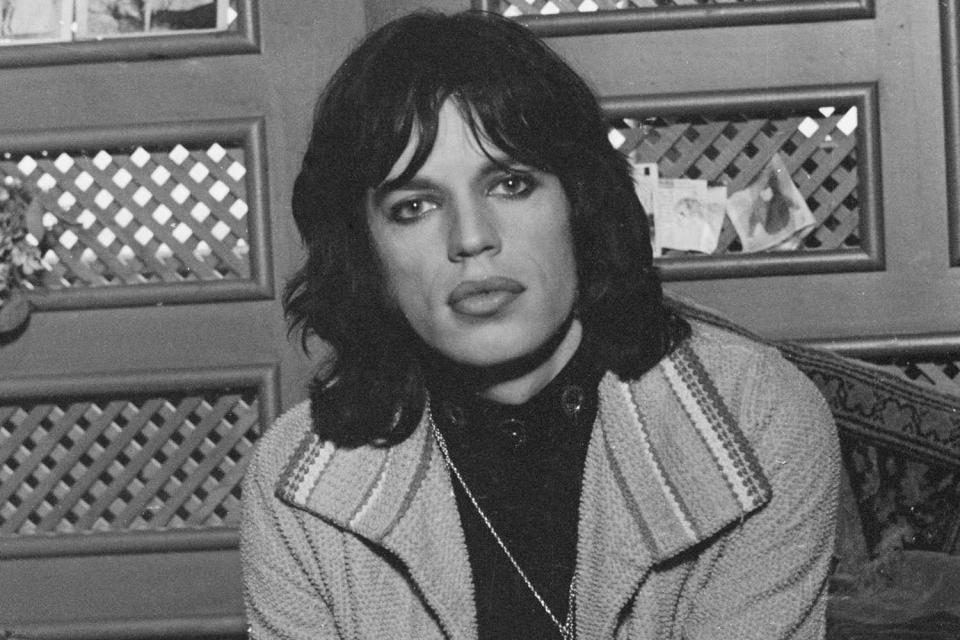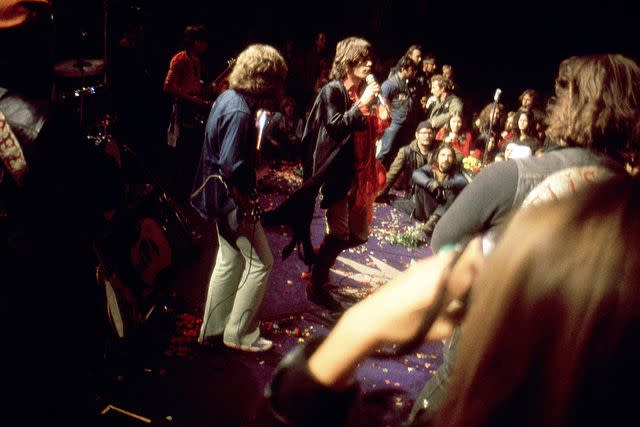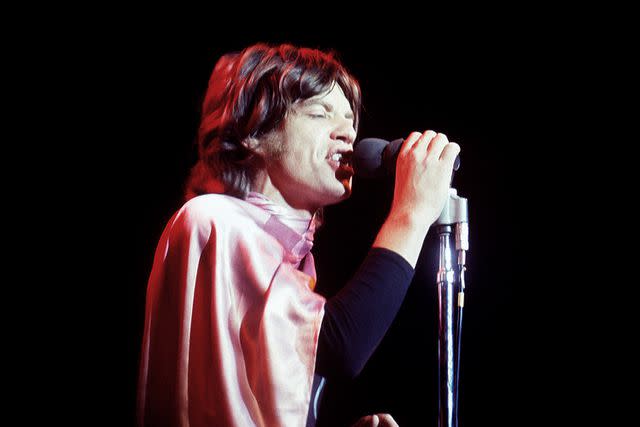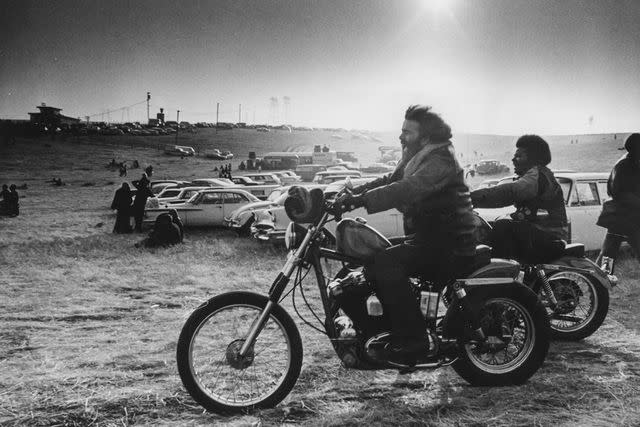Mick Jagger Was 'Scared S---less' to Perform After Tragic 1969 Altamont Show: 'A Lot of Guns Confiscated'
- Oops!Something went wrong.Please try again later.
- Oops!Something went wrong.Please try again later.
The Rolling Stones' 1972 tour is revisited on the new iHeart podcast 'Stones Touring Party'

Larry Ellis/Daily Express/Getty
Mick Jagger on the set of the British movie 'Performance' in September 1968Trouble was just a shot away for Mick Jagger in the early 1970s.
After the Rolling Stones’ free concert in Altamont, California ended in a tragic death in late 1969, the rocker was plagued with fear that amid a turning tide of public opinion, he may be next.
On a new episode of the iHeart podcast Stones Touring Party, hosted by former PEOPLE staffer Jordan Runtagh, a newly released tape archive — initially recorded during journalist Robert Greenfield’s lengthy interviews with the band and their entourage — offers never-before-heard insight into Jagger’s state of mind during the precarious years.
“Either I stopped touring or I didn’t. It was as simple as that. A few people said don’t go—friends of mine. They said, ‘You’ve really gotta be more careful, you can’t go.’ I said, ‘Well, it’s more or less what I do, so I gotta do it!’” Jagger, now 80, said. “‘Either I do it or I don’t do it.’ If I don’t do it, what am I going to do? There was a few places that it did get scary and there was a lot of guns confiscated and stuff like that. Don’t say I wasn’t scared—I was scared s—less!”
The Stones were fresh off the release of their soon-to-be classic Let It Bleed in December 1969 when they put on a free show at the Altamont Speedway.

Jeff Hochberg/Getty
The Rolling Stones perform at the Altamont concert in 1969.Related: Mick Jagger Turns 80! Loved Ones Celebrate the Rolling Stones Frontman on His Birthday
To keep the crowd in check, they hired members of the Hells Angels motorcycle club to act as security, as they were cheap (legend has it their payment was $500 worth of beer).
Despite the buzz surrounding the new record, the day got off on a bad foot; Jagger was punched in the face by an agitated concertgoer immediately after exiting the band’s helicopter, and further chaos grew as the Hells Angels members cracked pool cues over fans’ heads in an attempt to keep things under control.
“The ultimate test of Altamont is the Grateful Dead turned around and went home,” said Greenfield, an author and former Rolling Stone editor. “So if there’s a gig that the Grateful Dead are not gonna play because it’s too chaotic for them—whoa!”
Though violence continued through the afternoon (Jefferson Airplane singer Marty Balin was among those knocked down during the show), things took a tragic turn when Meredith Hunter, an 18-year-old Black fan standing near the stage, pulled a pistol from his jacket.
Hunter was quickly attacked by a member of the Hells Angels security team, who stabbed him at least six times as the band played on, fearing a riot should they put an end to the music (they only realized later that someone had been killed.)
Hunter’s death was captured on film by filmmakers Albert and David Maysles, who included it in their 1970 rock documentary Gimme Shelter. By then, the concert had inspired a flurry of bad press for the Rolling Stones, as many believed they’d brought inevitable tragedy upon themselves by hiring a security team with a violent reputation. A 20,000-word report that placed the blame on Jagger and was published in Rolling Stone weeks later didn’t help matters.

Jeff Hochberg/Getty
Mick Jagger performs at Altamont in 1969.“I think it affected all of us very profoundly. The only thing we were very upset about was being accused and held responsible for what happened,” former guitarist Mick Taylor said in the tapes. “And you can’t really blame anybody in that kind of mass hysteria. People in America know the Hells Angels are a violent organization. For that reason alone, I don't think they should have been hired as security guards, because it automatically gives them an excuse.”
Of course, the bad press wasn’t limited to the Stones — and the Hells Angels were none too pleased that the band had “left them high and dry” after the show.
Greenfield recalled swirling rumors that their ire would mean a possible hit put out on Jagger, prompting the rockers to up their security measures.
Related: The Rolling Stones Recording Music with The Beatles' Paul McCartney and Ringo Starr

Howard Erker/MediaNews Group/Oakland Tribune via Getty
Concertgoers arrive via motorcycle at Altamont Speedway ahead of the show in 1969.“You’re always open to being shot on stage. You’re always aware of that,” former bassist Bill Wyman said. “You don’t think about it but anybody with any sense at all would think there’s a possibility at some time or another that some crank is gonna… I mean, we’ve been shot at with an air gun before onstage. [Drummer Charlie Watts] got a pellet in his cheek!”
Despite Jagger’s fear, the group soldiered on, eventually returning to America in 1972 for the “Stones Touring Party” tour.
Alan Passaro, the Hells Angels member who stabbed Hunter, was later acquitted in the teen’s death after a jury concluded he acted in self-defense because Hunter was carrying a gun. The investigation was officially closed in 2005, 20 years after Passaro’s drowning death.
For more People news, make sure to sign up for our newsletter!
Read the original article on People.

